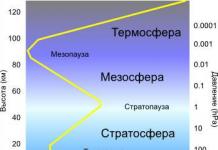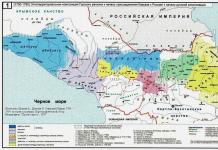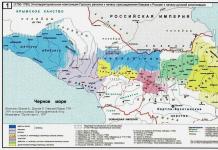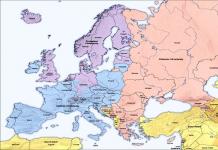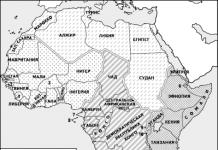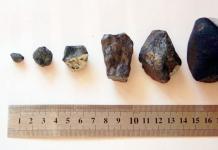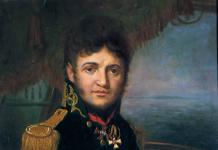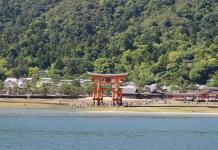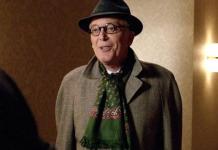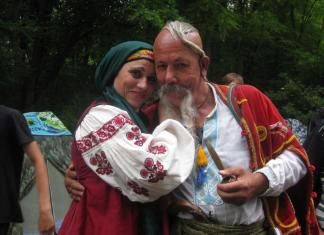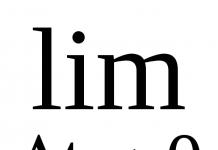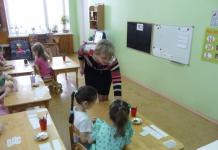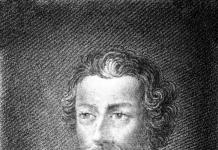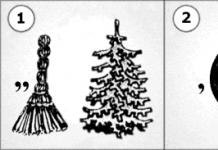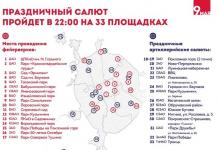France is a country that inspires with its tastes and aromas. People come here to master the high culinary art and the intricacies of sommelier work. But France is also a perfume industry with its institutions and famous perfumers. The best perfumery schools of this country of aromas will be discussed today.
The country of Voltaire, Coco Chanel and the Michelin guide is a popular destination for those who want to change their profession. People come here to enter the Sorbonne, learn the profession of a chef at Le Cordon Bleu or sew fashion collections at Istituto Marangoni. Much less popular is French perfumery education, and in vain: in addition to reputable schools that take five students a year and make an incredible amount of demands on them, there are many smaller courses that are ready to accept everyone. We decided to figure it out and figured out where to go for those who want to change their profession once and for all, and where for simple curious people who are satisfied with being a perfumer for one day. And, of course, we did not ignore the Russian master classes - so that you have a place to practice.
The most famous perfume institute in the world was founded in 1970 by the great-grandson of the founder of the House of Guerlain, Jean-Jacques Guerlain. Twenty students are admitted every year. To enter, you must have a higher education in chemistry: “Chemistry helps to understand how the components of perfume react with each other,” says ISIPCA graduate perfumer Cecile Zarokyan.
The training lasts two years, after which students have an internship in a perfume house. In the first year, they study analytical chemistry, the technology of creating perfumes and cosmetics, skin biology and ecology, as well as notes and chords (about 500 smells in total). The second year is devoted to business processes. To pass exams and receive a diploma, you need to be prepared to spend more than a dozen hours in the institute's library.
Studying here is difficult, so after the first session, half of the students are eliminated. ISIPCA is the only open institute in the world that issues international diplomas on obtaining additional education majoring in perfumery. The course costs 30,000 euros. The Edufrance organization, which issues grants for education in France, can help the Russians to slightly reduce this figure.
Guerlain is not the only cosmetic house involved in the creation of the Perfume Institute. Givaudan and Mane have their own schools. But only employees of these companies can get an education there.
Perfume school at the Swiss perfume concern Givaudan is located on the outskirts of Paris. It was founded under the direction of perfumer Jean Carlet in 1946 and offers a three-year training program. The school receives hundreds of applications each year, of which only five are selected. They accept here without a higher chemical education and do not charge a single euro cent for training.
The founder of the school, Jean Carle, developed a unique system of olfactory research, consisting of two diagrams: for natural elements and for synthetic ones. Graphs display the similarity and contrast of raw materials. The method, which received the name of Carle, remains the industry standard and the basis for research conducted by students of the Givaudan perfumery school. Graduates of the school return to work in a new capacity, replenishing the staff of the company's perfumers (now Givaudan employs about 70 "noses"). There is enough work to do: Calvin Klein, Bijan, Tom Ford, Marc Jacobs, Ralph Lauren, Hugo Boss and Paco Rabanne regularly turn to Givaudan for new fragrances.
This relatively young school was founded in 2002. Each year she accepts twelve students for an intensive nine-month course. It lasts from February to December with a break for summer vacation in July-August. Training takes place on English language and consists of 972 hours, of which 324 are devoted to lectures. They are read either by perfumers or technical experts. The rest of the time is devoted practical work and visits to factories, laboratories and gardens that grow flowers for fragrances. Tuition costs 12,000 euros. Must be submitted before admission entry exams on general education program, take a scent recognition test and an interview to assess motivation.

The school also has short summer courses for beginners and advanced perfumers, programs in aromatherapy and the training of technical assistants. Short perfume courses The lack of specialized education and a couple of extra years is not a reason to give up on a dream. You can also join the profession in short courses that last from several hours to several months and allow you to briefly plunge into the atmosphere of a perfumery school. A large selection of all kinds of trainings and master classes is offered by the Parisian school Cinquieme Sens (which translates as “fifth sense”). Education of students of all levels of training is conducted in English or French. Despite the short courses, the school boasts eminent graduates: for example, Vero Kern, perfumer and founder of the Vero Profumo brand, studied here. The shortest master class (introduction to the world of fragrances) lasts three hours and costs 280 euros. The longest one - nine days - is devoted to perfumery raw materials and costs 6,840. The Gallimard perfume house also has introductory lessons. They last from two to five hours. Future perfumers spend this time in mini-groups. Each participant gets access to a perfume organ containing over a hundred ingredients. Students first study perfume notes, and then they create the fragrance themselves. At the end of the master class, participants receive a diploma and 100 ml of their own perfume. Similar master classes offer Fragonard and Molinard. They are mainly aimed at tourists. In visitors, such entertainment often awakens a desire to further study the art of perfumery.

In Russia, there are also courses for those who want to change their profession. The School of Perfumers in St. Petersburg regularly runs a distance nine-month course. The cost of three stages of training for three months each is 150,000 rubles. The course includes lectures, consultations via messenger and educational materials. The art of perfumery has been taught for a long time and thoroughly at the Anna Agurina School of Perfumery. The cost of the course is 308,000 rubles. After completing each of the four levels, a certificate from the Institute of Grasse is issued, which indicates the number of hours passed. If you are looking for courses for the soul, there are such at the Natural Perfumery school. They are led by biochemist and perfumer Anna Zvorykina. Each level of education here costs from 11 thousand rubles. To learn such perfumery, you will have to come to Moscow. You can also take a short course on creating fragrances for personal use in St. Petersburg - with Natalia Svetlaya. The program is called “Your Own Perfumer” and costs 60,000 rubles.
Do I need to go to Paris to become a perfumer?
Ekaterina Khmelevskaya, perfume critic, perfume collector: “There is no professional perfumery education in Russia and there is no work for such specialists. There is an ISIPCA institute and a Givaudan school, but they are located in France. The rest: Galimards, Fragonards, Molinars and others are a fun attraction for tourists. Perfumery education involves a foundation in the form of several years of study organic chemistry. Only then can you get a perfumery education. You can’t become a real perfumer in a week or three months.”

Irina Vaganova, perfumer, founder of the Perfumery Fashion House: “In most cases, you should go to the Perfume University to study if you want to work in production. That is why, upon admission to higher educational institutions of the perfume industry, education in the field of biology, chemistry or pharmacology is required. In order to become a private perfumer, it is not necessary to go to France or other countries that have specialized perfume institutes.
So, in Russia there is also a school of perfumers - in St. Petersburg. Its peculiarity is that it is aimed at the revival of private perfumery in Russia. The program of the school consists of three courses: perfumery art history, development of olfactory memory and the practice of creating perfumes under the guidance of a perfumer. In addition, the program provides a block that helps to start independent work.
You can become a perfumer in Russia.
Unofficially.
You will gain knowledge and skills.
But the diploma is not.
All educational organizations of this profile existing in our country do not issue diplomas and other legally valid documents, they do not have state accreditations and licenses. That is, in reality they seem to exist, but officially they do not.
In the USSR there was the All-Union Scientific Research Institute of Synthetic and Natural Fragrances, the developments of the perfume laboratories of which were used by all 15 perfume factories of the Union. And there were training courses for perfumers - for example, at Soyuzparfyumerprom. And raw materials were produced - in Kaluga.
Today, the perfume industry in our country has practically no state support. And there are only private schools.
by the most major project of this kind is the St. Petersburg School of Perfumers.
*Discussions, reviews, opinions:
Training is possible in full-time and part-time format.
Conditions: when full-time: 9 months of training, 210 astronomical hours, cost - 300,000 rubles, staged payment. For residents of other cities who are ready to move for the duration of training - a 50% discount.
Recruitment - twice a year, based on the results of an individual interview.
The number of listeners is small, a few people.
The training program sounds like magical music. Even just reading it is not only exciting, interesting, but also informative! Types, types, characteristics of components, categories of fragrances, names of Great fragrances and names of Great masters. You can read and download it here After reading, your eyes are burning, your heart is raging, and your hands are reaching for a credit card. It is difficult to resist temptation, very difficult. I'm still not sure if I can.
Concerning the diploma, do not mislead. They speak honestly. "At the end, a single document will be issued: a personal letter of recommendation signed by both teachers with a list of the real skills and achievements of the student. The perfumer, like the tightrope walker, does not need documents: either he can or he doesn't. We are happy to send them to the same foreign schools or just away from us." And in many respects they are, in principle, right.
In addition to this school, there are also a number of:
* Courses where you can take, so to speak, an express training option:
Course of perfumer Anna Zvorykina, Moscow:
Course of perfumer Anna Gerasimova, Moscow:
*Workshops where you can practice making scents:
Thematic perfume workshops in the showroom of vintage fashion Sweet Sixties, led by the magical Galina Anni, Moscow
Perfume workshops of Natalia Svetlova - teacher at the School of Perfumers, St. Petersburg:
And many, many, many private projects, large and small, of all kinds. Finding them is not difficult, you just need to go to any search engine, for example, Yandex, and here it is: I can’t vouch for the usefulness of the knowledge gained on them, since I don’t have detailed information about the projects and their organizers.
And, of course, as in any other field, there are great prospects in terms of self-education in perfumery.
* Numerous thematic sites (),
Basically, take your pick. Sign up for a course at the School of Perfumers or create your own personal program "from the world by thread" - read, download, experiment, try. Desire, work, time, money (all the same, there is no way without them) - and now you are no longer just an amateur amateur, but a professional. Almost.
The only BUT. Be sure to think carefully before getting involved in this whole perfume epic - why do you need it?
If you are sincerely passionate about the field of perfumery and cannot imagine your life without aromas, the learning process will bring only joy and you will not regret the money spent (primarily material).
If you have free time and money, you want to develop your horizons, get new, interesting, universal knowledge in terms of personal, spiritual development - you are also here. Art, literature, history, fashion, perfumery - things that have never bothered anyone to understand.
But if you dream of becoming a perfumer in order to (first of all) - earn money (and maybe even big money) - think about it. There is no guarantee that the investment will pay off. Diploma, as mentioned above, you will not. Employment depends only on you. Yes, it will be possible to create your own perfume brand, conduct master classes, presentations and educational events. But the path to recognition and profit will definitely be thorny and probably not swift. PR, PR, PR again. Expenses. Work. Time.
If you plan to work in a world-famous company after graduation, such as, for example, IFF - or dream of making an international career, competing with Francis Kurkdzhiyan, Calice Becker and Ineke Rüland, then get ready for the fact that it’s still early or late will have to leave Russia. And most likely - to France, because it is there that the legendary International Institute of Perfumery, Cosmetics and Aromatic Substances ISIPCA is located, which has graduated both the above-mentioned specialists and many, many other recognized masters of the perfume world. This is the most famous and quoted institution of its kind today is the only one that issues diplomas of the generally accepted type. An interesting article about studying in it: Also in France there is famous school Givaudan (officially the oldest in the world, a third of modern fragrances are the work of its graduates), Grasse Institute of Perfumery and a few other wonderful places that you can read about here: Or here:
Oh yes. If you do not have a specialized chemical education, you will first have to get it. This is exactly what can be done in Russia.
You can become a perfumer in Russia.
Unofficially.
You will gain knowledge and skills.
But the diploma is not.
All educational organizations of this profile existing in our country do not issue diplomas and other legally valid documents, they do not have state accreditations and licenses. That is, in reality they seem to exist, but officially they do not.
In the USSR there was the All-Union Scientific Research Institute of Synthetic and Natural Fragrances, the developments of the perfume laboratories of which were used by all 15 perfume factories of the Union. And there were training courses for perfumers - for example, at Soyuzparfyumerprom. And raw materials were produced - in Kaluga.
Today, the perfume industry in our country has practically no state support. And there are only private schools.
The largest project of this kind is the St. Petersburg School of Perfumers.
*Discussions, reviews, opinions:
Training is possible in full-time and part-time format.
Conditions: full-time: 9 months of study, 210 astronomical hours, cost - 300,000 rubles, staged payment. For residents of other cities who are ready to move for the duration of training - a 50% discount.
Recruitment - twice a year, based on the results of an individual interview.
The number of listeners is small, a few people.
The training program sounds like magical music. Even just reading it is not only exciting, interesting, but also informative! Types, types, characteristics of components, categories of fragrances, names of Great fragrances and names of Great masters. You can read and download it here After reading, your eyes are burning, your heart is raging, and your hands are reaching for a credit card. It is difficult to resist temptation, very difficult. I'm still not sure if I can.
Concerning the diploma, do not mislead. They speak honestly. "At the end, a single document will be issued: a personal letter of recommendation signed by both teachers with a list of the real skills and achievements of the student. The perfumer, like the tightrope walker, does not need documents: either he can or he doesn't. We are happy to send them to the same foreign schools or just away from us." And in many respects they are, in principle, right.
In addition to this school, there are also a number of:
* Courses where you can take, so to speak, an express training option:
Course of perfumer Anna Zvorykina, Moscow:
Course of perfumer Anna Gerasimova, Moscow:
*Workshops where you can practice making scents:
Thematic perfume workshops in the showroom of vintage fashion Sweet Sixties, led by the magical Galina Anni, Moscow
Perfume workshops of Natalia Svetlova - teacher at the School of Perfumers, St. Petersburg:
And many, many, many private projects, large and small, of all kinds. Finding them is not difficult, you just need to go to any search engine, for example, Yandex, and here it is: I can’t vouch for the usefulness of the knowledge gained on them, since I don’t have detailed information about the projects and their organizers.
And, of course, as in any other field, there are great prospects in terms of self-education in perfumery.
* Numerous thematic sites (),
Basically, take your pick. Sign up for a course at the School of Perfumers or create your own personal program "from the world by thread" - read, download, experiment, try. Desire, work, time, money (all the same, there is no way without them) - and now you are no longer just an amateur amateur, but a professional. Almost.
The only BUT. Be sure to think carefully before getting involved in this whole perfume epic - why do you need it?
If you are sincerely passionate about the field of perfumery and cannot imagine your life without aromas, the learning process will bring only joy and you will not regret the money spent (primarily material).
If you have free time and money, you want to develop your horizons, get new, interesting, universal knowledge in terms of personal, spiritual development - you are also here. Art, literature, history, fashion, perfumery - things that have never bothered anyone to understand.
But if you dream of becoming a perfumer in order to (first of all) - earn money (and maybe even big money) - think about it. There is no guarantee that the investment will pay off. Diploma, as mentioned above, you will not. Employment depends only on you. Yes, it will be possible to create your own perfume brand, conduct master classes, presentations and educational events. But the path to recognition and profit will definitely be thorny and probably not swift. PR, PR, PR again. Expenses. Work. Time.
If you plan to work in a world-famous company after graduation, such as, for example, IFF - or dream of making an international career, competing with Francis Kurkdzhiyan, Calice Becker and Ineke Rüland, then get ready for the fact that it’s still early or late will have to leave Russia. And most likely - to France, because it is there that the legendary International Institute of Perfumery, Cosmetics and Aromatic Substances ISIPCA is located, which has graduated both the above-mentioned specialists and many, many other recognized masters of the perfume world. This is the most famous and quoted institution of its kind today is the only one that issues diplomas of the generally accepted type. An interesting article about studying in it: Also in France there is the famous Givaudan school (officially the oldest in the world, a third of modern fragrances are the work of its graduates), the Grasse Institute of Perfumery and several other wonderful places that you can read about here: Or here:
Oh yes. If you do not have a specialized chemical education, you will first have to get it. This is exactly what can be done in Russia.
I have workshops of a new format, with webinars and distribution of materials.
This course is about olfactory literacy, not about “becoming a perfumer”. We will learn to smell and think about what we smell, not mix. If you want not to miss the next set of courses - the surest way - there is a field at the bottom of the page "enter your email to subscribe", drive in the email there.
In addition, always at your service
I have been running natural perfumery workshops for about 10 years, so the program has been tried and tested many times and is effective. Here, on the beauty insider, Masha wrote about her experience of learning from my workshops very clearly and well. But she writes about Elina's training on ladymail.
The goal of my workshops is to make fragrances a part of your life, a natural and beautiful part of it, bringing harmony in the constant stress of modern life.
REVIEWS FROM WORKSHOP PARTICIPANTS
Feedback from the participants of the master classes on how the training took place and what they got as a result.
I thank all my students! Communication with you gave me pleasure and a lot of pleasant emotions! I wish you success!
“I went to Anna to organize my chaos and learn how to deal with aromatic materials in a meaningful way. The first step is the basics, safety precautions, the basic rules for working with EOs, their behavior on the skin, verbalization of olfactory experience. The lessons are good and well structured. The most interesting for me at the first stage were the conversations about the physiology of smell, about physical and chemical processes in solutions, about the archetypes of smells and the area of the metaphorical. The most important thing is that it is simply pleasant to study with Anna, and therefore I am going to go to the next two steps in the future.”
Galina Anni, author of natural perfumes, owner of Sweet Sixties salon
“The very approach to learning and the presentation of the material, in my opinion, are very competently and thoughtfully compiled. This is, firstly, systematized and reasonably dosed information, and secondly, a course of practical exercises and personal experiments that allow students to smoothly gain experience from simple to more complex. No sharp jumps and dashing gallops across Europe, which is very important.
And perhaps most importantly: Anna teaches precisely creative thinking Well, of course, to the extent that it can be taught.
About the fact that Anna herself, in addition to what really real master his business, and also very charming and interesting person, I won’t tell you 🙂 You can verify this on your own, so to speak, already in the learning process.”
Alla Chernova, author of natural perfumes
“If someone has been eyeing essential oils for a long time, or wondering how it is done at all - perfume! - Feel free to go and learn. Even if you don’t become a perfumer, just blending oils will give you a lot of pleasure and good mood 🙂
And I would also like to say a couple of warm words about the group, of which I was a part of this training. Here, as with honey: either only light, thin and in every sense beautiful people begin to get involved in perfumery, or perfumery makes them so. I became richer for several new acquaintances and I want to thank everyone: for pleasant communication, goodwill and cordiality. You are beautiful, gentlemen, future perfumers! "
Snezhana susanne_m, creator of a line of natural cosmetics from Canada
“It has always been important for me that the teacher does not chew for me and does not feed me from a spoon, but shows me where to go. He took the first steps along the road with me, but did not lead me by the hand. Gave information and left room for thought. And it seems to me that Anna is perfect in this sense.
It seems that she didn’t do any sacred things, but she began to perceive the world of smells in a different way. Definitely different. Consciously. And even store perfumes. Now I'm trying to understand even those perfumes that I rejected outright. Somehow imperceptibly formed a different approach to smells. Look, I'll love anise. Even before the lectures and exercises, I had a couple of samples of natural perfumes. So, 4 out of 5 smelled about the same to me. And now I suddenly realized - they are all DIFFERENT. And it’s not clear to me how I didn’t notice this before - well, different, after all!
Olga
“I went to study. I set off with a heavy heart: I always believed that all these heart and plume notes, green and blue scents were the inventions of sophisticated perfumers, that it was absolutely impossible for an ordinary person to understand and feel this.
And at the very first lessons, I almost without a miss determine when this or that aroma will open and I find traces of clean, but poor old women in the rose.
At the second stage, we mix the components and read the finished mixtures. Until now, I wonder how you can decompose perfume into separate components, like some kind of salad, but, come on, we did it!
It's a wonderful, wonderful, wonderful pastime!"
In addition to a developed sense of smell and a creative mindset, a perfumer needs at least minimal knowledge of chemistry and botany. He should not have allergies, asthma, frequent headaches. Everything else can be learned in specialized schools. Creation of aromas is an interesting and very profitable profession. However, you must be prepared for difficulties along the way.
Content:
Perfumers of the past generation started out as apprentices. For example, Sofia Groisman (born in Belarus in 1945) learned the secrets of craftsmanship while helping a perfumer at IFF. Now most graduate first educational institution. It is important to understand that a graduation diploma specialized courses or university is not a guarantee of success. You have to learn a lot on your own.
First steps
A perfumer by vocation is distinguished by the following qualities:
These are just the basic criteria. The most exhaustive list does not exist, since for each person it will be purely individual. A perfumer is a person who can tell a story without a single word. It is not possible to work according to the instructions. The master is guided by 50% deep knowledge of chemistry and 50% by intuition.
Inspirational Examples
Many perfumers have been interested in fragrances since childhood. The founder of her own niche brand, JoAnne Bassett, recalls how she played with petals as a child: she made flower water, mixtures from them, and she once made her first soap from roses. However, there are many who entered this sphere already at a conscious age. For example, Calice Becker, the owner of two top FiFi perfumery awards (for and), seriously thought about the "fragrant" specialty only after she had studied at the university for some time. And her colleague Ralf Schweiger is only 30 years old.
Youthful memories often play a key role. Ralf Schweiger grew up in a forested region of Germany, and now he likes to use moss, greenery, forest smells in his compositions. The founder of niche brand Providence, Charna Etier, was "looking for trees with fragrant bark" and playing "smell shop". Guerlain's in-house perfumer, Thierry Wasser, grew up in a small Swiss town surrounded by forested hills. "As a child, I learned to listen to the rhythm of nature," says the perfumer.

Bertrand Duchafour remembered the pine forest near his house, and the parents of Jan Wasnier (co-author Marc Jacobs Lola) inherited a whole park, where there were over 100 varieties of roses alone. A true perfumer is able to turn his feelings, emotions and memories into olfactory compositions that will resonate in the hearts of hundreds of thousands of people.

Many "stars" of the perfume firmament have inherited a profession: Chanel's staff perfumer Olivier Polge, founder of Juliette Has a Gun Romano Ricci, creator and Olivier Cresp, his sister Françoise Caron, Jacques Cavalier. But connections are far from a guarantee of success. Each of these masters every day for many years proves that he is in his place in life.

First public perfumery school Peace Institute Superieur International du Parfum, de la Cosmetique et de I "Aromatique Alimentaire was established in 1970 and still maintains the status of a leader. Founder - Jean-Jacques Guerlain. Among the graduates are Isabelle Doyen, Jean Guichard (1973), Matilde Laurent, Annick Menardo (1988), Francis Kurkdzhiyan (1992), Anne Flipo (1984), Ilias Erminidis (created the perfume presented under the Vera Wang brand,). About 400 students study in 13 directions. In addition to perfumers themselves (20 people annually), ISIPCA trains purchasing specialists and marketers.
There are over 220 teachers, and 80% of them are employees of the fragrance industry. Jean Claude Ellena, Carlos Benaim, Jean Kerleo taught here at different times. Easiest to get additional profession at the ISIPCA school for graduates of the University of Versailles UVSQ, as these two institutions have an agreement.
Several open international programs, where instruction is in English, but for most specialties it is necessary to speak French. Applicants need a bachelor's degree in chemistry. However, the educational institution also offers courses for entrepreneurs, which last only six months and do not require prior chemical training.

ISIPCA (International Superior Institute of Perfumery, Cosmetics and Food Aroma)
ISIPCA works on a partnership program with universities of Versailles Saint-Quentin-en-Yvelines, and the University of Padova. The study takes two years. The first year at Versailles is dedicated to analytical chemistry, memorizing notes and chords, technology for creating perfumes and cosmetics, skin biology, ecology. And during the second year in Padua, the focus is on business processes.
Get ready for the big one independent work in the library - the lecture material is not enough to pass the exams. After the first session, up to 50% of students are eliminated. Perfumery is not an area that requires a large number of specialists. That is why you should not hope for concessions. You have to study and work hard.
Training costs over 10 thousand Euros. Russians have the opportunity to receive a grant through the French Embassy, the organization Edufrance. You need to clearly understand why you are going to France, for how long, what you already know how and how you are going to apply the acquired skills. This information must be stated in the so-called project or motivational letter of application. Details are on the embassy website.
Perfumery schools at large companies
Leading companies in the fragrance industry - Givaudan, IFF, Firmenich and Symrise - have their own schools, where only employees can go. The dropout is harsh. For example, out of 200 applicants at the Givaudan school, only five remain. Education is free, but the company itself costs 65,000 euros to train one perfumer. But every third famous perfume is created by Givaudan employees. School at Givaudan graduated from Thierry Wasser, Ralf Schweiger. Graduates of the school at Créations Aromatiques (Geneva) - Bertrand Douchafour and Christine Nagel.
Geza Schoen, who created the perfume molecule (brand Escentric Molecules), took a course with Haarmann & Reimer (H&R). Subsequently, this company merged with Dragoco, forming the perfume giant Symrise. Schoen still remembers his study visit to the Paris branch of Hasslauer. He ended up in a room where a huge collection of ambergris was kept. The perfumer calls this peculiar animalistic fragrance his first olfactory shock.

At the Russian factory "Novaya Zarya" there is an Academy of Perfumery Art, where consultants are trained. If it seems that this is not serious, remember examples from other areas. Quentin Tarantino worked for a long time in VHS before he started directing his films. Also, many musicians began their journey working as salespeople in music stores.
The nine-month program at the Grasse Perfumery Institute costs 11,000 euros. For admission, you need to pass general education exams, pass a test for recognizing aromas, an interview to assess motivation. How quickly can you recoup the cost of training? It is of great importance in which country and in what position to work. For example, the wages of a full-time perfumer in a large European company are paid several thousand euros per month.

There are many ways to monetize for a professional:
Alternatives
There is a perfume program at the University of Plymouth (Great Britain), the Cinquième Sens school (language - French). Of the exotic, King Mongkut University (Bangkok), Shanghai University, a program in Yokohama and Tokyo can be noted. Teaching is conducted respectively in Thai, Chinese, Japanese.

Is perfumery just a hobby for you? Then you can try the courses (there are online options, seminars). The easiest way to learn the art of pairing perfume notes in practice is to create hand-made perfumes from essential oils. After all, it's not a cheap hobby. The better the materials, the more expensive they are. However, there are budget EMs on the market to get you started.
A prestigious perfumery school is only the first step in a career. Before creating a world-class bestseller, most perfumers spent at least 10 years in the fragrance industry. Capable graduates get jobs in giant companies Firmenich, IFF, Givaudan, Mane, Takasago, Symrise. Later, some of them become full-time perfumers of fashion houses. A related specialty is the developer of fragrances for cosmetics and food products.
As you can see, the standard scheme for a professional perfumer is as follows: chemical faculty, school (ISIPCA or with a large company), work in one of the six leaders in perfumery. But there are also self-taught masters who, despite this, managed to climb the peaks of the fragrant Olympus: Annick Goutal, Joe Malone, Andy Tower and not only.


